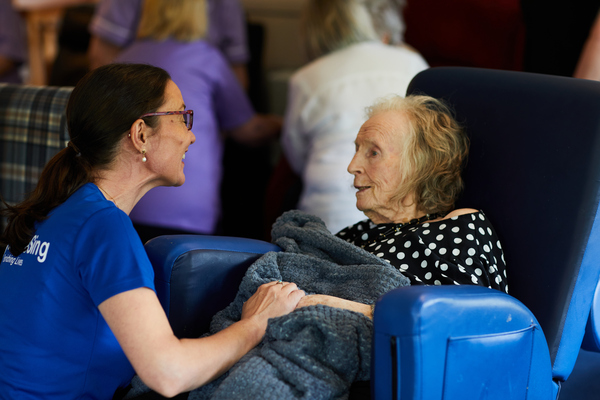They say music is the soundtrack to our lives – and for many, it’s a bridge to the past, a source of joy in the present, and a powerful tool for healing. But beyond its feel-good factor, music is increasingly being recognised as a cornerstone of holistic care, especially for older adults.
Whether it’s a favourite Beatles tune drifting through the hallway, or the soft notes of a piano played by a resident, music has the power to do more than entertain. It evokes memory, sparks conversation, lifts spirits, and connects people in ways that words often can’t.
Music As A Portal To The Past
One of music’s most profound gifts is its ability to awaken memories. For individuals living with dementia or Alzheimer’s, familiar melodies often stir vivid recollections of weddings, childhood summers, or a first dance. Unlike other forms of memory, musical memory tends to remain intact long after other faculties fade. This connection can help spark meaningful interactions, build emotional bridges with loved ones, and bring comfort in otherwise confusing moments.
A single song can transport someone decades back, unlocking memories that were thought to be lost. It’s not magic… it’s neuroscience. Studies show that music activates areas of the brain associated with emotion and long-term memory, making it a valuable therapeutic tool.
A Universal Language Of Connection
Music breaks barriers. It doesn’t matter if you’re 25 or 95, sharing a song can create a moment of connection that transcends age, language, or even cognitive ability. In care home environments, communal music sessions often turn into spontaneous sing-alongs, foot tapping, and even dancing.
These shared experiences foster community, reduce feelings of isolation, and encourage self-expression. In environments where loneliness can be a real challenge, music becomes a social glue, helping residents feel seen, heard, and part of something bigger.
Supporting Mental And Physical Wellbeing
The benefits of music on mental health are well documented. It can reduce anxiety, lower blood pressure, and even help regulate sleep. For older adults, especially those experiencing cognitive decline, structured music therapy has shown to reduce agitation and improve mood.
On a physical level, engaging with music, through singing, tapping, or dancing, can help maintain motor skills and improve coordination. It encourages movement, even in small doses, which is key to maintaining independence and overall health.
Anavo’s Approach: Purpose, Connection And The Power Of Music
At Anavo, holistic care is not just a concept – it’s a commitment. Their approach goes beyond meeting physical needs to encompass emotional, social, and psychological wellbeing. Music plays a powerful role in this vision.
By integrating music into daily life, Anavo homes create spaces where residents are encouraged to express themselves, connect with others, and relive meaningful moments. It’s part of their broader mission to support independence and instil a sense of purpose in every resident, whether through a favourite song, a spontaneous dance in the lounge, or a quiet moment of reflection with headphones on.
Anavo recognises that care should be as individual as the people they support, and music is one of the many tools they use to tailor experiences, boost confidence, and nurture joy.

More Than Just Notes On A Page
Music is not just background noise in holistic care, it’s a vibrant, essential part of nurturing the whole person. It reconnects, revives, and restores. And in the hands of compassionate carers and forward-thinking providers like Anavo, it becomes something truly powerful: a path to dignity, belonging, and joy.
Visit one of Anavo’s care homes taking part in Care Home Open Week this week. You can discover the power of music in care first hand and, if you visit Surbitonian Gardens Care Home on Tuesday at 10:30am, you could even meet the Strictly Star, Erin Boag.


